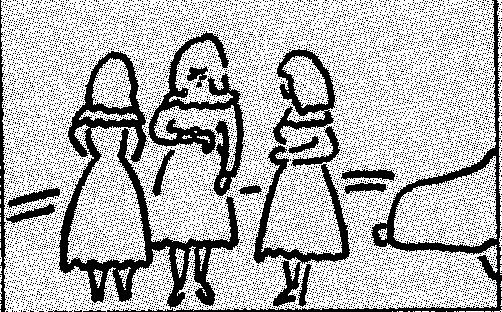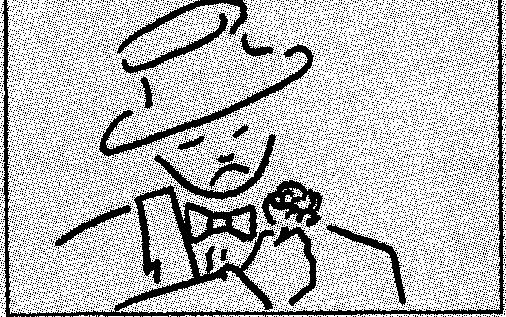
- •Оглавление
- •11. Грамматический материал…………………………………
- •Пояснительная записка
- •Силлабус
- •5. Характеристика курса:
- •5.1. Назначение учебной дисциплины
- •5.2. Цель курса:
- •5.3. Задачи изучения дисциплины
- •5.4 Знания и умения после прохождения курса Устная речь Студенты должны:
- •6.5. План изучения дисциплины
- •6. Контроль знаний
- •7. Система оценивания:
- •7.1.Критерии оценивания уровня продуктивных видов коммуникативной деятельности: Говорение:
- •Письменная речь:
- •Аудирование:
- •Чтение:
- •Итоговая оценка знаний студентов по дисциплине
- •8. Политика учебной дисциплины (административные требования):
- •Vocabulary:
- •Vocabulary exercises:
- •Vocabulary:
- •1. What is an ‘arranged marriage’? In which countries or cultures is this type of marriage common? Do you know anyone who has had an arranged marriage?
- •Vocabulary:
- •1. Listen to the conversation and answer the questions:
- •II. Listen to the conversation again. Imitate the phrases expressing suggestions and replies to suggestions
- •III. Find in the text appropriate English phrases for the following
- •Text Medicine and Health Care
- •Vocabulary:
- •Vocabulary exercises:
- •Vocabulary Exercises:
- •Books in My Life
- •Ecology
- •Vocabulary:
- •Vocabulary exercises:
- •Apologies, offers, permission.
- •I. Listen to the conversation and answer the questions:
- •II. Read the conversation. Find in the text appropriate English phrases for the following:
- •III. Role-play the conversation. Самостоятельная работа студентов:
- •Motors and Cars
- •Vocabulary:
- •Vocabulary exercises:
- •Vocabulary exercises:
- •Traveling
- •Questionnaire
- •Leaving on a Jet Plane
- •I. Listen to the conversations, learn them and make substitutions:
- •Act out the interview:
- •1. Creative Work
- •2. Writing:
- •Frederick Douglass, an American Slave
- •Vocabulary:
- •Vocabulary exercises:
- •Vocabulary exercises:
- •Letters to the editor
- •I ask readers to consider these facts on voting age:
- •Iran 15
- •1. Listen to the conversation and answer the questions:
- •II. Give a brief account of the conversation:
- •III. Find in the text appropriate English phrases for the following:
- •IV. Act out the conversation. Самостоятельная работа студентов:
- •1. Creative Work
- •2. Do research work for the following questions.
- •Рубежный контроль 2
- •The list of the topics for exam
- •Mass media in Great Britain
- •Vocabulary:
- •Text Film Festival Season
- •Vocabulary
- •Vocabulary exercises:
- •Today, the Internet. Tomorrow,…?
- •Answer the following questions:
- •Mobile phones
- •I. Listen to the dialogues and learn them. Make up similar dialogues.
- •II. Now work in pairs taking turns to ask for and give directions from point X to the following:
- •III. Act out the following situations:
- •Самостоятельная работа студентов:
- •1. Do library research and prepare an essay on one of the following theme:
- •3. Make a poster advertising your film festival
- •London Art Galleries
- •Vocabulary exercises:
- •Types of music
- •The Arts in America
- •Conversation practice: Offers. Permission.
- •Самостоятельная работа студентов:
- •Insert that or what.
- •The Search for Beauty
- •Vocabulary
- •Are today’s teenagers victims of fashion?
- •Vocabulary:
- •Topical vocabulary
- •Topical exercises
- •The 18th Century
- •Your jeans and your personality
- •Socializing (Greetings and leave-takings)
- •1. Listen to the conversation and answer the questions:
- •II .Find in the text appropriate English phrases for the following:
- •III. Insert the missing phrases from the conversation:
- •IV.Role-play the conversation
- •V. Act out the following situations:
- •Самостоятельная работа студентов:
- •2. Take pictures of fashion show and give a fashion commentary on the outfits of your show.
- •3. To write an essay on the biography of one outstanding courtier.
- •4. Choose one of the following statements and make a one minute speech supporting it.
- •British customs and traditions
- •Vocabulary:
- •Carnival safety success
- •Vocabulary
- •In the Hall of the Airport.
- •Act out the following situations:
- •Самостоятельная работа студентов
- •2. Christmas poems
- •3. Make up a holiday calendar of Great Britain, America and Kazakhstan Unit 10
- •Getting a job in the usa
- •English schooling Topical Vocabulary
- •Suggested situations
- •Vocabulary:
- •I. Listen to the dialogues and learn them:
- •II. Respond to the statements giving advice. Use:
- •III. Advice your friend to (not to):
- •Самостоятельная работа студентов:
- •Рубежный контроль 4
- •Insert the right article.
- •The list of topics for the exam
- •Indirect speech.
- •The Night Uncle Bob Was Arrested
- •Methodological recommendations
- •Types of essay:
Vocabulary:
Prenuptial - предсвадебный
Pristine – прежний, былой, чистый
Chaotic – хаотичный, хаотический
Bliss - блаженство
Allowance - разрешение
Savior - спаситель
Enterprise - предприятие
Mutual - взаимный
Fee - гонорар
Pregnant - беременная
Intensity - интенсивность
Exercise3. Read the text more carefully and answer the questions.
1. Find some things that Annie and Clifford have in common, and some things that they don’t have in common.
2. Annie and Clifford say that marriages fail because of arguments about money, behavior and children. Which of their rules refer to these four things?
3. Are the following statements true or false? Rewrite the false statements to make them true.
Clifford does all the cooking.
He prepares everything very carefully.
Their apartment looks messy but comfortable.
Annie misunderstands why Clifford touches her arm.
They want the contract to ensure an uncomplicated divorce if they split up.
f. There will be no alcohol at their wedding.
4. What are your impressions of Clifford and Annie? Which of the following words best describe your opinion of them? Why?
Sensible, weird, ridiculous, romantic, spontaneous, easy-going, warm and loving, cold and calculating, unbelievable
Exercise4. Find a word in the text with the same or similar meaning to the following.
Boringly and seriously
Perfect happiness
Money paid as a punishment
A plan of how money will be spent
Time before marriage when a couple gets to know each other.
Make some sentences using the words.
Exercise5. What do you think?
Do you think the best couples ….
… should be of a similar age and background?
… should have a similar character and interest?
Exercise6. Make a list of top 10 of the best famous couples. You can use as the Kazakh and Russian celebrities as foreign ones.
 Topical
vocabulary:
Topical
vocabulary:
Wedding bell: fiancée, bride, fiancé, bridegroom, spouse, newly-weds, honeymoon, marital status, bachelor, to be engaged, to be married, to split up, to tie a knot, widow, widower:
Family: blood relatives, siblings, pregnancy, baby, to have a baby, to be pregnant, toddler, teenager, adolescence, adolescent, one-parent family, a full-family, an out-of-wedlock child;
In-laws: to foster, to adopt, to bring up, to grow up, foster-parents, guardian, stepfather, stepmother, stepsister, stepbrother, Godmother, Godfather;
Relationship: to impress, to fascinate, to captivate, to respect, to look up to, to go steady with, to be close, to like, to fall in love with, to make date, to be fond of, to get on well, to keep in touch, to communicate, to stand each other, to loathe, to hate, to envy, to be afraid of, to ignore, to treat, to trust, to confide in, to admire, to look down on, to miss, to detest.
Vocabulary exercises:
Exercise1. Make a story using the words from the topical vocabulary.
Arrange the verbs below to describe a typical relationship. Compare your story with a partner’s one.
e.x. First you meet, then you …..
Argue break up fall in love
Get on well get to know each other keep in touch
Meet go out together stay friends
Exercise2. Look at the pictures, put them into the logical order and make up a sentence to express the story.
1.
 2.
2.
 3.
3. 4.
4. 5.
5. 6.
6. 7.
7. 8.
8.
 9.
9. 10.
10.
 11.
11.

Picture _______________________________________________________________
Picture _______________________________________________________________
Picture _______________________________________________________________
Picture _______________________________________________________________
Picture _______________________________________________________________
Picture _______________________________________________________________
Picture _______________________________________________________________
Picture _______________________________________________________________
Picture _______________________________________________________________
Picture _______________________________________________________________
Picture ______________________________________________________________
Exercise3. Translate the sentences from Russian into English.
1.Это была шикарная свадьба, невеста выглядела потрясающе. 2. В западных странах подружкам невесты принято одевать одинаковые наряды. 3. После развода Дина и Карл не перестали общаться, и теперь они близкие друзья. 4. Ходят слухи, что самая красивая пара Голливуда Анджелина Джоли и Бред Пит разошлись. 5. Самым скандальным разводом назван развод Бритни Спирс и Кевина Федерлайна. 6. Приятной новостью была новость о том, что Мэри беременна, она должна родить к февралю. 7. Подростковый возраст – очень критичный для любого подростка. 8. Государство очень внимательно относится к усыновлениям наших детей зарубежными гражданами. 9. Опекуном маленькой Кэт была назначена ее крестная мама. 10. Когда мы встретились первый раз, он не произвел на меня никакого впечатления, но позднее я была очарована им. 11. Джон мой самый лучший друг с детства, мы относимся друг к другу как родные. 12. Моя сестра после замужества очень быстро поладили с родственниками своего мужа. 13. Молодожены в качестве подарка выбрали свадебное путешествие по Средиземному морю. 14.Мы переехали в новый район, я очень быстро подружилась с соседскими сверстниками, но мой брат терпеть их не может. 15. Мой тетя и дядя решили усыновить еще одного малыша. 16. Мой муж, когда мы познакомились, не замечал меня очень долго, но после одной вечеринки он пригласил меня на свидание; мы поженились спустя 4 месяца. 17.Я до сих пор восхищаюсь нежными чувствами моих бабушки и дедушки, для меня они идеал счастливого брака. 18. Глядя на ее подвенечное платье, Терри не могла не заплакать. 19. После 1969 года Британия была названа «столицей разводов Европы». 20.Шокирующей новостью стала новость из США, там растет количество семей с неполных семей.
Exercise4. Read a magazine’s article about how many children a family must have.
The Children
By C.Northcote Parkinson.
Knowing that children may be desirable, we need to decide upon their number. All thought rejects the only child, thus making two the minimum, just not enough to reach the population at its present level. A family having one boy and a girl is well-balanced. In case of a single illness or accident with a boy might extinguish the family’s male line, there is reason to have a reserve.
The large family of five or more is not generally desirable. Five children at an average interval of two years must imply a quarter of a century spent in changing nappies and supervising homework. This is justifiable only on the assumption that the children matter more than the parents. But why should this be assumed? There are instances, to be sure, where the fact is evident, but the theory that parents should always live for their children is absurd. That the child might be Isaak Newton is true, but the father might be Jonathan Sebastian Bach. To conclude that each generation must matter less than the next is ridiculous and will lead us nowhere …
All that is left for the child-oriented parent is the prospect of becoming a grandparent. This is merely an opportunity to make the same mistake again. It is true that a grandmother is sometimes the answer to the babysitter career, but this justifies her in making a baby-sitter career. Early marriage has changed the pattern of grand-maternity. The girl who marries at 18 will be about 37 when she becomes a grandmother. The only solution is to be less obsessed with children. Where mother and father devote themselves to parenthood, children gain a wrong notion of their own importance. Taking themselves too seriously, they feel that their point of view is significant; that the world of today is something which only they can comprehend; and that future of mankind depends on what they say and do. This sense of mission has led some politicians to believe that young people have a new maturity.
